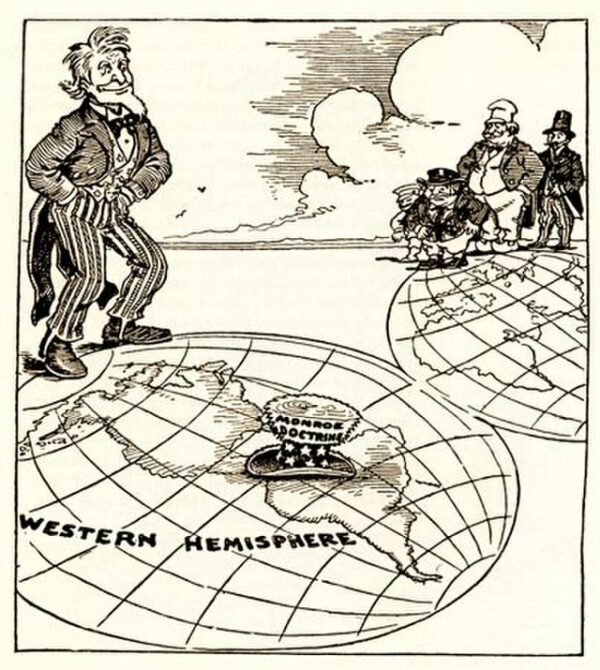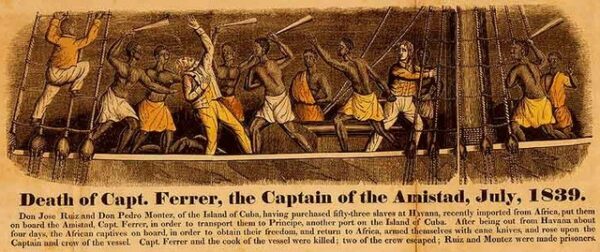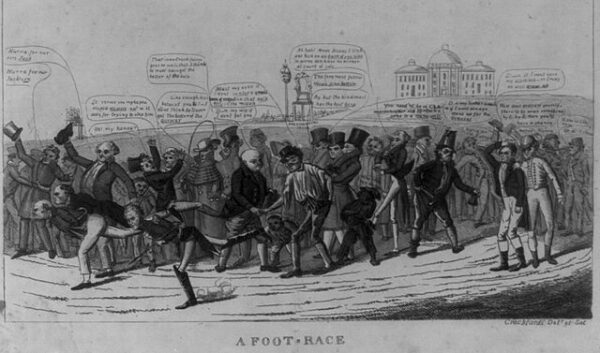On December 2, 1823, President James Monroe established his defining legacy. Delivering a message to Congress, the fifth president of the United States announced a foreign policy that would make America the predominant actor in the Western Hemisphere. The Monroe Doctrine was born.
At its core, the doctrine aimed to discourage European powers from further colonization in the Americas and prevent any form of intervention in the affairs of independent nations in the Western Hemisphere. Monroe’s declaration came at a time when many Latin American countries were gaining independence from Spanish rule, and the U.S. sought to establish itself as a dominant force in the region.
The Gilder Lehrman Institute writes, “The United States was wary of European intervention in Florida, the Pacific Northwest, and Latin America. In 1821, Russia claimed control of the entire Pacific coast from Alaska to Oregon and closed the area to foreign shipping. This development coincided with rumors that Spain, with the help of European allies, was planning to reconquer its former Latin American colonies.
European intervention threatened British as well as American interests. Britain had a flourishing trade with Latin America, which would decline if Spain regained its New World colonies, and had claims to territory in the Oregon country of the Pacific Northwest. In 1823, British Foreign Minister George Canning proposed that the United States and Britain jointly announce their opposition to further European intervention in the Americas.
Secretary of State John Quincy Adams opposed a joint declaration. He convinced President Monroe to make a unilateral declaration of American policy—known as the Monroe Doctrine. Monroe announced that the Western Hemisphere was henceforth closed to further European colonization or puppet monarchs. He also said that the United States would not interfere in internal European affairs.”
Although initially met with skepticism from European nations, the Monroe Doctrine gradually gained acceptance over the years and became a cornerstone of American foreign policy. It set the stage for the U.S. to assert itself as a protector of the hemisphere’s independence and laid the foundation for the country’s growing influence in international affairs.
Over time, the Monroe Doctrine evolved in response to changing geopolitical circumstances. While originally focused on European intervention, it later expanded to encompass the U.S.’s commitment to prevent the spread of communism during the Cold War. The doctrine served as a justification for U.S. involvement in various conflicts and crises in the Americas, reinforcing the nation’s self-perceived role as a guardian of democracy and stability in the region.






